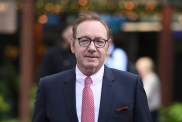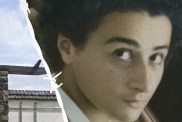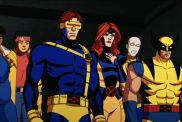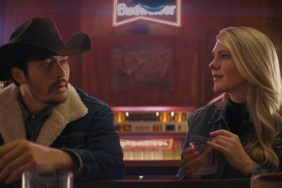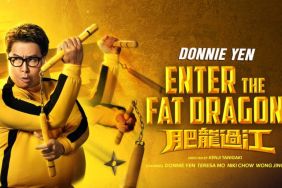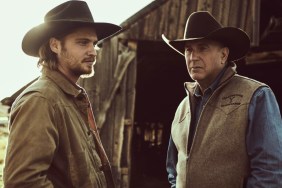
I had a chance to sit down with Barry Pepper to discuss the recent release Flags of our Fathers release. Many actors in Hollywood are hard charging type A personalities but I found Barry to be exactly like he’s been in films like 61* and The Three Burials of Melquiades Estrada. He’s a soft spoken guy, but clearly genuine and excited about Flags. Okay, from here on out I’ll let him speak for himself, hope you like the interview.
Q: So what has everyone else been asking you so I can avoid repetition?
Barry Pepper: Oh, you know, there’s so many things to talk about, don’t worry about it. Everybody wants to know what it’s like to work with Clint Eastwood. That’s a fun question to answer because he’s absolutely emblematic of everything that’s good about our industry.
Q: Did you end doing anything in Letters from Iwo Jima with him?
Barry: No, he shot that completely separate. He shot it right after we finished Flags, he went to Japan and hired all Japanese actors and shot the entire film in Japanese. It’s got Ken Watanabe .
Q: What a different film that must be…
Barry: Oh yeah, he’s revolutionized the war film genre in my opinion. Maybe Tora! Tora! Tora! is the only thing similar. But to do an entirely separate film from the Japanese, or from the enemies perspective, it’s incredible.
Q: How do you think that will play to audiences? Will people see want to see it?
Barry: From what I’ve heard, I was speaking to his wife and it’s just one of the best films she’s ever seen. Clint’s not going to say that, he’s far too humble for that kind of thing, but his wife and his agent were saying it’s absolutely mesmerizing what he accomplished with it. I think it’s out in March of next year. Each film can’t really stand alone because they will complete each other. The battle of Iwo was staged in such a way that the Marines didn’t really see the Japanese soldiers. It was rare, in those 36 days, that they saw a Japanese soldier alive. By default that was the way Flags had to be shot. It wasn’t intimate at all. A lot of war films tend to do that because they could care less about the enemy but that’s not the case here, he was going to shoot that different point of view. A totally different film too, the storyline and theme.
Q: A single shot (photo) can end the war. Is that something you believe in?

Q: This is a complex film in that the picture is one thing and the actuality is another. Does it make sense to take apart the symbol of the photo?
Barry: The symbol has a higher purpose behind it. All I know is Clint didn’t set out to make a political film. You’re not being asked to draw parallels to what’s happening today. You can if you want, that’s the wonderful nature of film. Everyone is welcome to interpret. For me that image (the flag raising at Iwo Jima) still represents what it’s meant to and what’s inscribed on the monument in Arlington. “Uncommon valor was a common virtue.” It was for all the Marines since 1776. It’s for the soldiers in Afghanistan and Iraq. But if you draw parallels to what’s happening today you don’t have to look much further than the six o’clock news to see that propaganda is a theme that is time eternal in conflict.
Q: Would they not let you film on Iwo Jima because it’s a memorial?
Barry: You wouldn’t have been able to accomplish the battle sequences that we put on film. Not to the same degree as Iceland which was just barren volcanic tundra so we were able to stage the entire battle. Two months of the film were shot there. But yeah, Iwo is a memorial with everything exactly as it was. Clint was telling me you could look into one of the caves and you’d find cigarette packs and shell casings. Everything just left as it was. The Japanese aren’t souvenir collectors so they just left everything in place as a memorial so you really couldn’t have gone and disturbed that.
Q: Are there roles out there that don’t come across your desk?
Barry: I don’t get a lot of romantic comedies. The most defining images of my career have been in really dramatic films, so people tend to typecast you that way. It is quite an uphill battle to try and switch gears and do comedy. It’s not my choice, I have absolutely no fears in terms of material, I’d love to do a comedy or a romantic comedy. I really thoroughly enjoy the type of I do but yeah, it would be nice to switch gears every now and then. I’d like to be in films my family can see; sometimes they’re a little too visceral or salacious. It’s too hard for the younger or more reserved members of my family. I’d love to do a kid’s movie for my six year old daughter. I’d love to do voice over kind of stuff. I’d go do Curious George, I could play the monkey.
Q: What determines success for you on a project? Seeing it and loving it? Box office?
Barry: This industry is such a fickle mistress so you never know. I did Three Burials and Tommy Lee Jones won best actor at Cannes and it was heralded throughout Europe in our press tour there. Then it comes to America and fizzle because Sony Classics has Capote and they know that film is going for gold. They kind of have to go with the one horse they have in the race. That’s the nature of the industry. You do have to understand that it’s a business. That can be bittersweet because you put your heart and soul into it and to see it fade is tough. People on the street ask why they didn’t get to see it and it’s like it was only in theaters for a week, sorry not my decision! You choose projects based on a passion level that you can sustain for two years. That’s why I’ve tried my hand at producing the last few films, learning the ropes, learning the behind the scenes of filmmaking.
Q: Can you say anything about Unknown?
Barry: Yeah, the Weinstein Company, it’s coming out in November. It’s a psychological thriller. I’ve got other stuff I’m working on but with nothing official you know…
Sadly I do know because that’s the siren song of almost everyone in the business. Nevertheless my time with Barry was up. Flag of our Fathers released Friday, October 20th.

